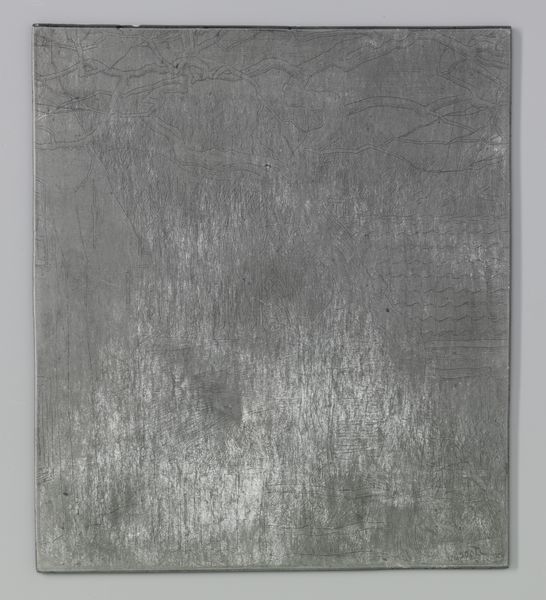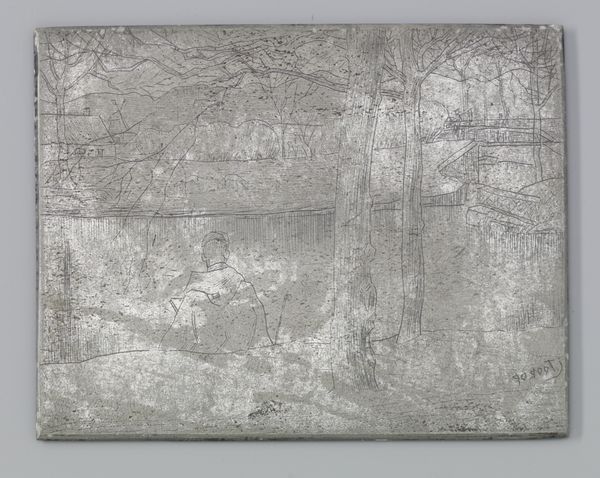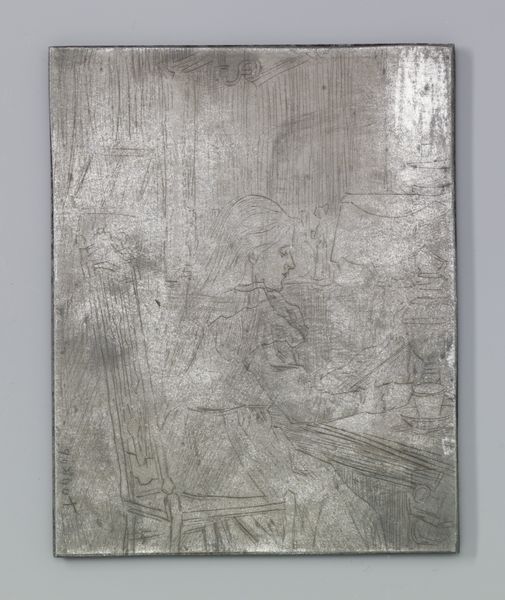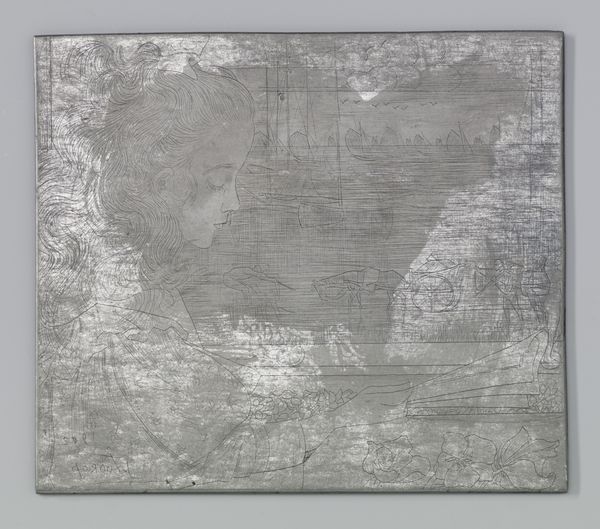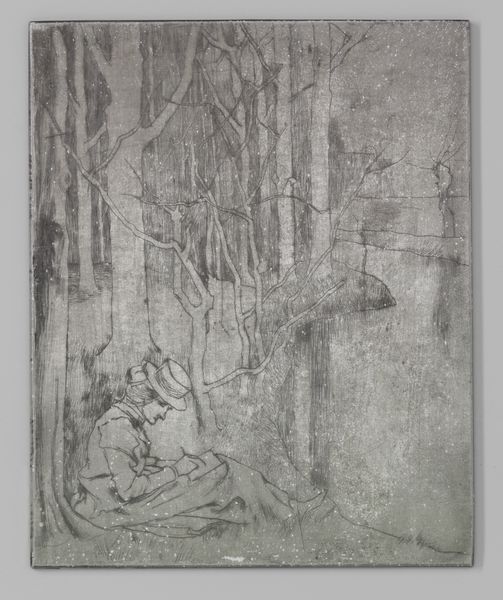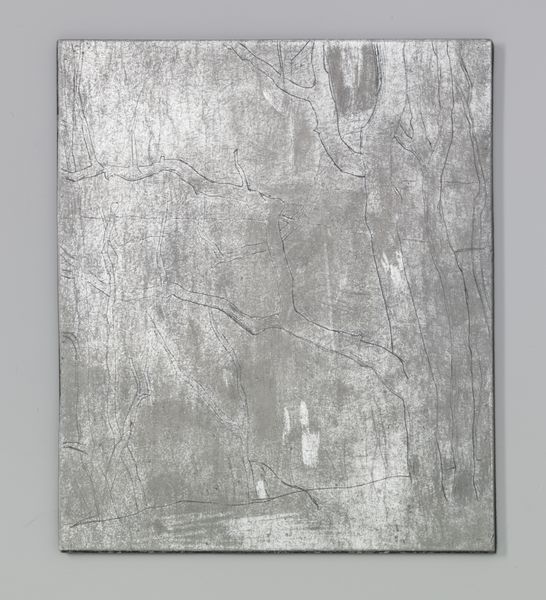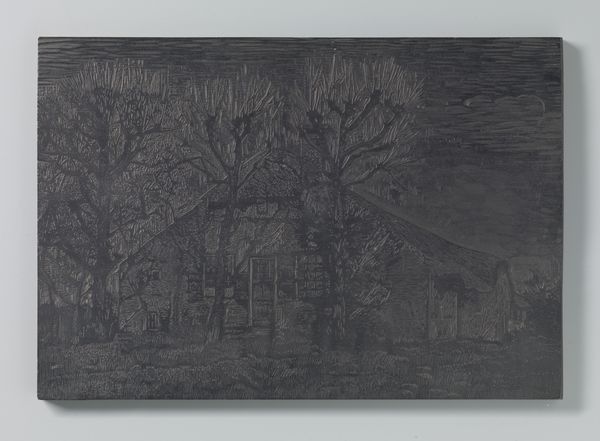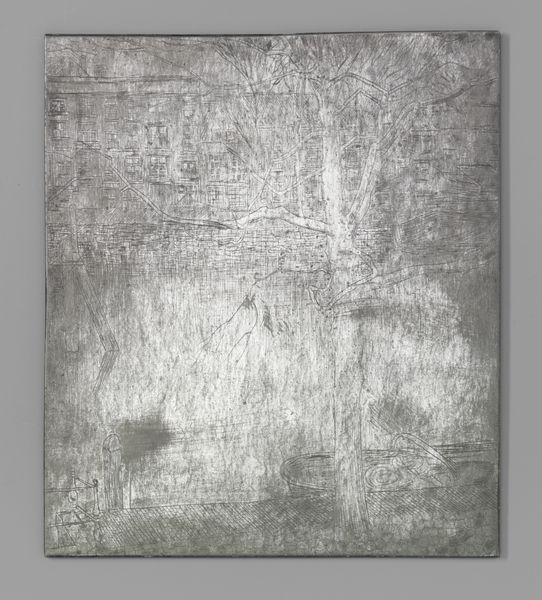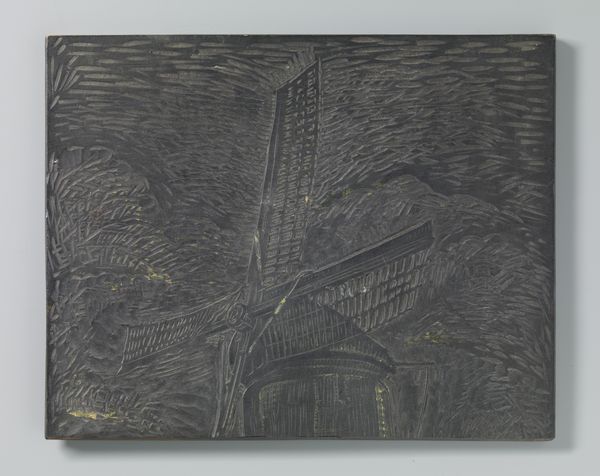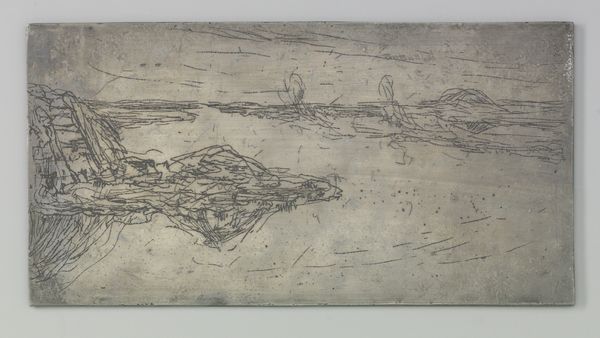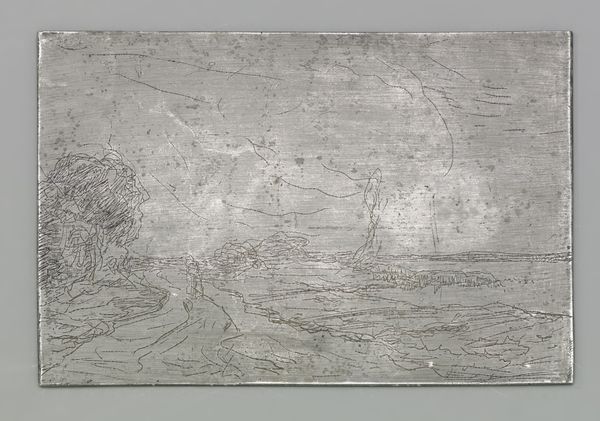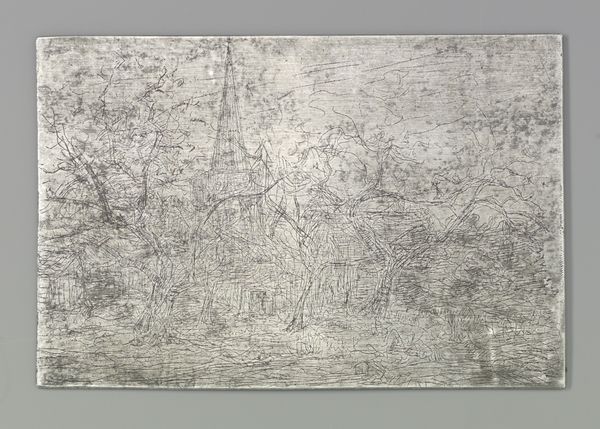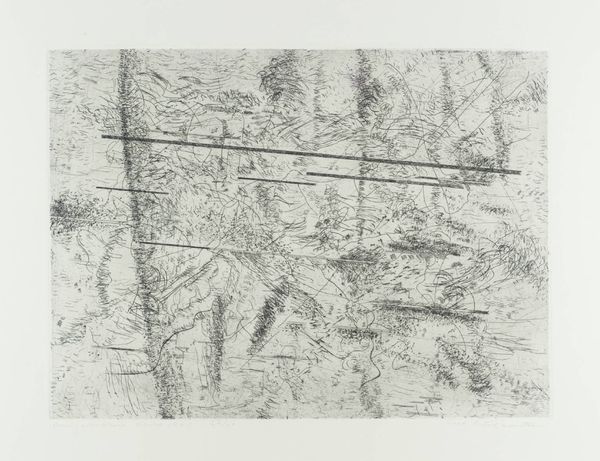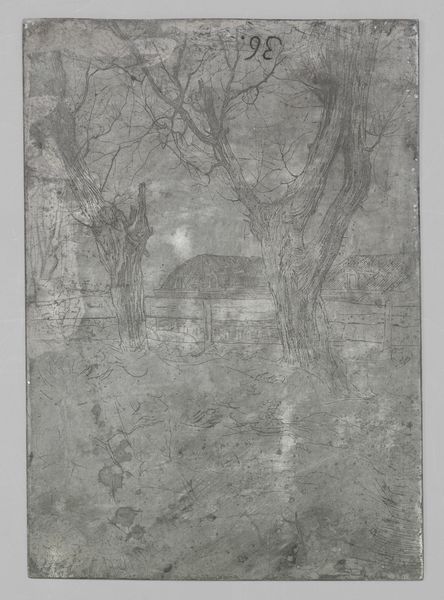
drawing, print, woodcut, graphite
#
drawing
# print
#
landscape
#
forest
#
woodcut
#
line
#
graphite
Dimensions: height 103 mm, width 101 mm
Copyright: Rijks Museum: Open Domain
Editor: So, this is Jan Toorop's "In het bos," from 1895. It's a woodcut and graphite drawing, creating this dense, almost claustrophobic forest scene. I'm really struck by the incredible detail achieved with such limited means. What can you tell me about it? Curator: Well, consider the labor involved. Toorop, known for his diverse output from painting to posters, here chooses woodcut. This requires considerable physical effort, the artist actively carving away material. It's a direct contrast to, say, the ease of photography emerging at the time. The social context matters: what does it mean for an artist to consciously embrace such a laborious process in an age of increasing mechanization? Editor: That's a great point, the deliberate act of carving becomes really significant. The process dictates the image, doesn't it? It looks almost like a silverpoint drawing on metal, mimicking a photograph! Curator: Exactly! He's grappling with these new forms of mass production. He elevates a typically more utilitarian or "folk art" material. The print as commodity allowed for the wide distribution, in a new global market. How does it alter our reading of 'nature' here if disseminated so widely, cheaply? Is nature simply another material in the artistic process, another commodity? Editor: I see. It challenges that romantic idea of nature being this pure, untouched space, right? It really brings in a modern, even cynical perspective. It's also interesting how he combines the graphite, maybe hinting at a traditional sketch? Curator: Good eye! That tension embodies modern art as a material enterprise: old versus new methods, the handcrafted competing with mass production. A print is a copy, sold, traded, possessed in ways a unique painting can’t be. Editor: I never thought about it that way! The focus on the materials and how it was made gives a whole new layer of understanding. It really highlights the cultural anxieties of the time. Thank you! Curator: Absolutely. It invites us to really think about art as an active and deeply social act of production. I'll look for that too, going forward!
Comments
No comments
Be the first to comment and join the conversation on the ultimate creative platform.
